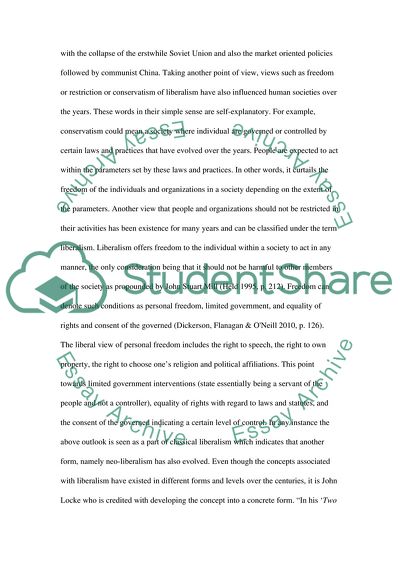Cite this document
(Classical Liberalism and Neo-liberalism Essay Example | Topics and Well Written Essays - 4000 words, n.d.)
Classical Liberalism and Neo-liberalism Essay Example | Topics and Well Written Essays - 4000 words. Retrieved from https://studentshare.org/politics/1744750-1-what-is-the-difference-between-classical-liberalism-utopianism-and-neo-liberalism-2-what-explains-the-crisis-of-neoliberalism
Classical Liberalism and Neo-liberalism Essay Example | Topics and Well Written Essays - 4000 words. Retrieved from https://studentshare.org/politics/1744750-1-what-is-the-difference-between-classical-liberalism-utopianism-and-neo-liberalism-2-what-explains-the-crisis-of-neoliberalism
(Classical Liberalism and Neo-Liberalism Essay Example | Topics and Well Written Essays - 4000 Words)
Classical Liberalism and Neo-Liberalism Essay Example | Topics and Well Written Essays - 4000 Words. https://studentshare.org/politics/1744750-1-what-is-the-difference-between-classical-liberalism-utopianism-and-neo-liberalism-2-what-explains-the-crisis-of-neoliberalism.
Classical Liberalism and Neo-Liberalism Essay Example | Topics and Well Written Essays - 4000 Words. https://studentshare.org/politics/1744750-1-what-is-the-difference-between-classical-liberalism-utopianism-and-neo-liberalism-2-what-explains-the-crisis-of-neoliberalism.
“Classical Liberalism and Neo-Liberalism Essay Example | Topics and Well Written Essays - 4000 Words”, n.d. https://studentshare.org/politics/1744750-1-what-is-the-difference-between-classical-liberalism-utopianism-and-neo-liberalism-2-what-explains-the-crisis-of-neoliberalism.


